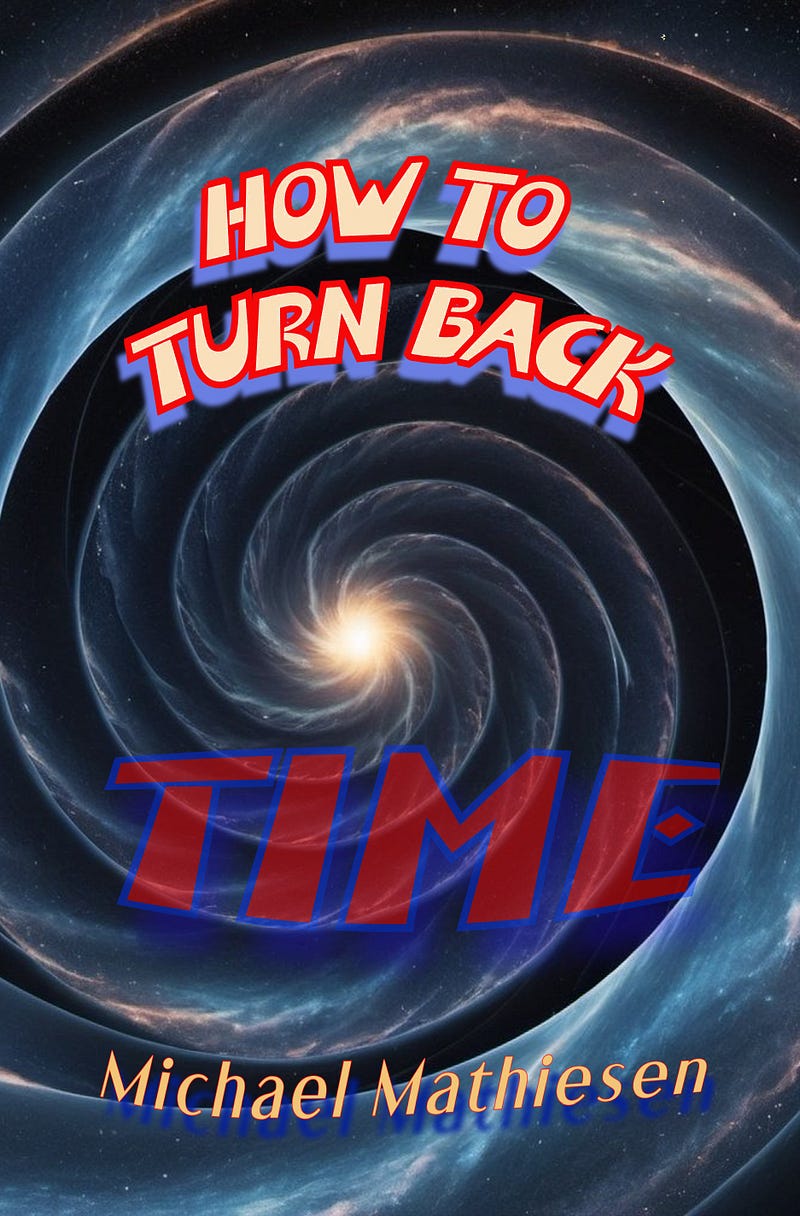# Exploring the Nature of Time Through Einstein's Insights
Written on
Chapter 1: Understanding Time's Role in Our Universe
Recent reflections have led me to formulate a groundbreaking principle in physics, one I believe will be crucial as we face an urgent race against time to preserve our species and the myriad forms of life on Earth. I call this the Law of Conservation of Time.
This law posits that the total amount of time within an isolated system remains unchanged. It suggests that time is conserved across distances. Specifically, within a closed system, the total time can only shift when time enters or exits the system. Time cannot be created or annihilated; it can only be transformed or shifted from one state to another.
For further insights, visit my website — MyTimeWave.com.
While working in my office recently, it struck me that contemporary science has brought us to a pivotal moment where a deeper understanding of time is essential. People can easily describe how we measure time in seconds, minutes, hours, days, months, and years, but defining what time truly is remains elusive.
Albert Einstein famously remarked that time is an illusion that connects the past with the present and future. This perspective resonates with many, even if it lacks a rigorous scientific foundation. It's a concept we can hold onto when pondering the intricacies of time.
In my quest to explore this concept further, I began to see the universe through the lens of the fundamental forces that govern it, all of which manifest as waves. Hence, I propose that "time flows through the universe in waves."
I am now inviting the scientific community to validate or challenge my hypothesis. A significant opportunity for this lies with the European Space Agency's ambitious project, LISA. This initiative involves deploying three satellites positioned approximately five million miles apart, forming the corners of a vast triangle with a circumference of nearly 15 million miles. These satellites will emit high-energy red lasers to detect passing gravitational waves by observing their interactions with the sensitive laser beams.
With a bit of innovation and additional funding for this already multi-billion-dollar project, I propose enhancing LISA by incorporating an array of atomic clocks. This addition could potentially enable the detection of time waves alongside gravitational waves.
If time waves can indeed be identified, it would revolutionize our understanding of physics. While gravitational waves have already been observed by the LIGO experiment—confirming Einstein’s General Theory of Relativity, which predicts that gravity propagates in waves—discovering time waves could bridge the gap between quantum mechanics and the larger-scale universe that explains the positions of planets, stars, and galaxies.
Detecting time waves could also fill existing gaps in modern physics and offer a fresh perspective on a universe profoundly influenced by time, often unnoticed. The upgraded LISA experiment might even reveal the origins of these time waves, though I'm skeptical about the feasibility of this.
It's crucial to consider another significant aspect of my pursuit of time waves. By the time LISA is launched in 2035, human civilization could be on the brink of extinction. I can envision the desperate pleas of countless individuals urging us to reverse time to amend our course and secure a better future for generations to come.
It is my overarching thesis that we possess the capability to alter our seemingly inevitable future, ensuring that future generations will appreciate our actions rather than resent us for our inaction in the face of a climate crisis. If we can envision the future clearly and unite in our efforts, we hold the power over time. The LISA experiment could provide the critical evidence for the existence of time waves, potentially offering a solution to our pressing challenges.
Section 1.1: The Emergence of Time in Physics
In this section, we will explore how time has been perceived in the realm of physics and the implications of its conservation.

Subsection 1.1.1: Einstein's Influence on Time
We will delve into Einstein's theories and their impact on our understanding of time and space.
Chapter 2: The LISA Experiment and Its Potential
As we examine the LISA project, we will discuss its significance in the exploration of gravitational and time waves.
The first video titled "Einstein in Pasadena: Between Two Worlds" by Diana K. Buchwald provides an insightful overview of Einstein's life and his contributions to our understanding of time and space.
The second video, "The Genius of Einstein: The Science, His Brain, the Man," explores the intricate relationship between Einstein's intellect and his groundbreaking theories in physics.